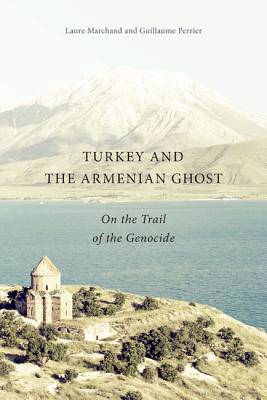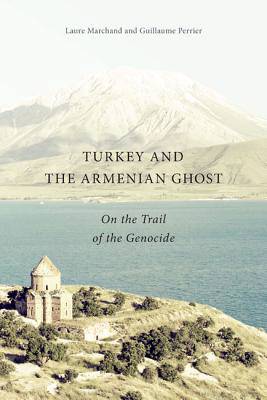
- Retrait gratuit dans votre magasin Club
- 7.000.000 titres dans notre catalogue
- Payer en toute sécurité
- Toujours un magasin près de chez vous
- Retrait gratuit dans votre magasin Club
- 7.000.0000 titres dans notre catalogue
- Payer en toute sécurité
- Toujours un magasin près de chez vous
Turkey and the Armenian Ghost
On the Trail of the Genocide
Laure Marchand, Guillaume Perrier, Debbie Blythe
Livre relié | Anglais
48,45 €
+ 96 points
Description
The first genocide of the twentieth century remains unrecognized and unpunished. Turkey continues to deny the slaughter of over a million Ottoman Armenians in 1915 and the following years. What sets the Armenian genocide apart from other mass atrocities is that the country responsible has never officially acknowledged its actions, and no individual has ever been brought to justice. In Turkey and the Armenian Ghost, a translation of the award-winning La Turquie et le fantôme arménien, Laure Marchand and Guillaume Perrier visit historic sites and interview politicians, elderly survivors, descendants, authors, and activists in a quest for the hidden truth. Taking the reader into remote mountain regions, tiny hamlets, and the homes of traumatized victims of a deadly persecution that continues to this day, they reveal little-known aspects of the history and culture of a people who have been rendered invisible in their ancient homeland. Seeking to illuminate complex issues of blame and responsibility, guilt and innocence, the authors discuss the roles played in this drama by the "righteous Turks," the Kurds, the converts, the rebels, and the "leftovers of the sword." They also describe the struggle to have the genocide officially recognized in Turkey, France, and the United States. Arguing that this giant cover-up has had consequences for Turks as well as for Armenians, the authors point to a society sickened by a century of denial. The face of Turkey is gradually changing, however, and a new generation of Turks is beginning to understand what happened and to realize that the ghost of the Armenian genocide must be recognized and laid to rest.
Spécifications
Parties prenantes
- Auteur(s) :
- Editeur:
Contenu
- Nombre de pages :
- 260
- Langue:
- Anglais
Caractéristiques
- EAN:
- 9780773545496
- Date de parution :
- 16-03-15
- Format:
- Livre relié
- Format numérique:
- Genaaid
- Dimensions :
- 160 mm x 234 mm
- Poids :
- 498 g

Les avis
Nous publions uniquement les avis qui respectent les conditions requises. Consultez nos conditions pour les avis.






